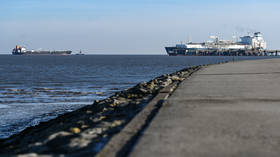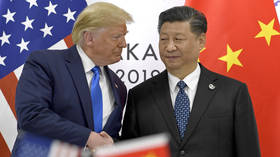Oil price cap will not make a dent in Russia’s revenues – IMF

The price ceiling on Russian oil set by the Group of Seven (G7) countries, the European Union and Australia will not affect the country’s crude exports, media reported on Monday, citing an IMF forecast.
The price cap on Russian seaborne oil exports of $60 per barrel was introduced on December 5. It bans Western companies from providing insurance and other services to shipments of Russian oil unless the cargo is purchased at or below the set price. Prior to the price cap being adopted, the EU placed a separate embargo on Russian seaborne oil exports.
“It is expected that with the current oil price cap set by the G7, Russian crude oil exports will not be significantly affected, as Russian trade is redirected from countries that have adopted sanctions to countries that have not imposed them,” the IMF said.
Russia has rerouted most of its crude flows to Asian markets. The country has ramped up its seaborne oil shipments to China, India and Türkiye at the expense of advanced economies, according to the report, which states that Russian oil exports to India alone jumped 33 times in December. Data also shows that Russian oil cargoes face minimal disruption from the EU denial of shipping and insurance services.
Russian oil is currently trading below the G7's price cap. The average price for Urals oil blend was $46.82 per barrel, or $341.8 per ton, between December 15 and January 14, according to the Russian finance ministry.
According to business daily RBK, in December the average price of Urals was $50.47 per barrel, which is significantly lower than a year earlier, when Urals cost $72.71 per barrel. In November 2022, the average monthly price of a barrel of Urals was $66.47.
Russia has been opposed to the price cap initiative from the start. Last month, President Vladimir Putin signed a decree banning the supply of Russian oil and oil products to foreign buyers that “directly or indirectly” mention the cap in their contracts. The ban comes into force on February 1, and will be valid for five months, until July 1, 2023.
For more stories on economy & finance visit RT's business section













